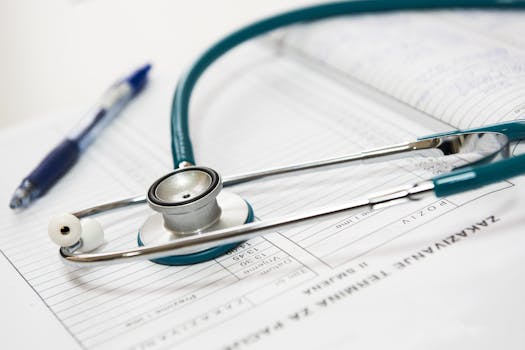The Importance of Regular Medical Check-Ups for Early Detection of Skin Cancer
Skin cancer is one of the most common types of cancer worldwide, with millions of new cases diagnosed each year. According to the American Academy of Dermatology, one in five Americans will develop skin cancer by the age of 70. Regular medical check-ups play a crucial role in the early detection and treatment of this potentially life-threatening disease. This article explores the significance of routine skin examinations, the types of skin cancer, and the preventive measures individuals can take to safeguard their skin health.
Understanding Skin Cancer
Skin cancer primarily arises from the skin’s outer layer, known as the epidermis. There are three main types of skin cancer:
- Basal Cell Carcinoma (BCC): The most common form, BCC usually appears as a small, shiny bump or a sore that doesn’t heal. It rarely spreads to other parts of the body.
- Squamous Cell Carcinoma (SCC): This type often manifests as a firm, red nodule or a flat sore with a scaly crust. SCC can be more aggressive than BCC and may spread if not treated.
- Melanoma: The deadliest form of skin cancer, melanoma can develop from existing moles or appear as new, unusual growths. Early detection is critical, as it can spread rapidly to other organs.
The Role of Regular Check-Ups
Regular medical check-ups are essential for the early detection of skin cancer. Dermatologists recommend that individuals perform self-examinations monthly and schedule professional skin checks annually, or more frequently if they have risk factors such as a family history of skin cancer or a history of excessive sun exposure.
Benefits of Regular Skin Examinations
Routine skin examinations offer several benefits:
- Early Detection: The earlier skin cancer is detected, the higher the chances of successful treatment. For instance, melanoma has a 99% survival rate when detected early.
- Professional Assessment: Dermatologists are trained to identify suspicious moles and lesions that may go unnoticed by the untrained eye.
- Education on Skin Health: Regular visits provide an opportunity for patients to learn about sun protection, skin care, and the importance of monitoring changes in their skin.
Statistics Highlighting the Need for Regular Check-Ups
Statistics underscore the importance of regular check-ups in combating skin cancer:
- The Skin Cancer Foundation reports that more than 90% of nonmelanoma skin cancers are associated with exposure to ultraviolet (UV) radiation from the sun.
- According to the American Cancer Society, in 2023, an estimated 99,780 new melanomas will be diagnosed in the United States.
- Research indicates that individuals who have regular skin checks are more likely to have skin cancer detected at an earlier stage compared to those who do not.
Case Studies: Success Stories of Early Detection
Several case studies illustrate the life-saving impact of regular skin check-ups:
- Case Study 1: A 45-year-old woman noticed a change in a mole on her back during a self-examination. She scheduled a check-up, and her dermatologist identified it as early-stage melanoma. With prompt treatment, she is now cancer-free.
- Case Study 2: A 60-year-old man with a history of sunburns visited his dermatologist for a routine check-up. The doctor discovered a suspicious lesion on his scalp, which turned out to be squamous cell carcinoma. Early intervention led to successful treatment.
Preventive Measures for Skin Health
In addition to regular check-ups, individuals can take proactive steps to protect their skin:
- Use Sunscreen: Apply broad-spectrum sunscreen with an SPF of 30 or higher daily, even on cloudy days.
- Avoid Tanning Beds: Tanning beds increase the risk of developing skin cancer, particularly in young people.
- Wear Protective Clothing: Long sleeves, hats, and sunglasses can shield the skin from harmful UV rays.
Conclusion
Regular medical check-ups are vital for the early detection of skin cancer, significantly improving treatment outcomes and survival rates. With skin cancer being a prevalent health concern, understanding the types of skin cancer, the benefits of routine examinations, and the importance of preventive measures can empower individuals to take charge of their skin health. By prioritizing regular check-ups and adopting protective strategies, we can collectively reduce the incidence of skin cancer and promote a healthier future.
